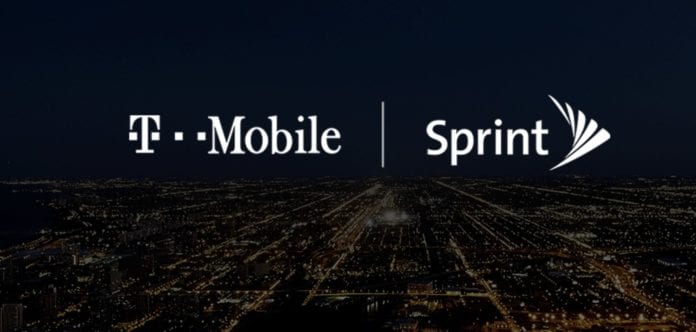T-Mobile COO: Combined company will go after AT&T and Verizon “like they’ve never seen before”
Ahead of the company’s quarterly earnings call, T-Mobile US got the go-ahead from the U.S. Department of Justice to merge with Sprint. While there are still some obstacles to overcome, particularly a lawsuit filed by several state attorneys general, this is a major step in what has been quite a protracted process.
And while T-Mo and Sprint will likely combine as New T-Mobile with T-Mobile CEO John Legere heading the new company, that doesn’t mean the U.S. wireless market is consolidating from four to three players. Per the terms of the DoJ’s consent decree, Sprint’s prepaid businesses, including Boost Mobile and Virgin Mobile, will go to Dish along with some 800 MHz spectrum licenses and access to wireless infrastructure sites that would be made redundant with the merger.
During the Q2 call earlier today, T-Mobile leaders talked through what the merger means for T-Mobile but also what it means for the larger wireless market with an emphasis on their relationship with Charlie Ergen’s DISH.
“The consent decree with the DoJ removes a huge hurdle for this merger to proceed,” Legere said. “We are going to create a bigger and bolder competitor with a transformative 5G network.”
The colorful CEO repeatedly referred to DISH as a “serious and credible” wireless market entrant and said AT&T and Verizon should keep an eye on the new kid in town.
“I’m not usually the one…to be positive on others’ capabilities but I would say it’s very clear that with the spectrum DISH has, with the acquisition of Boost with the MVNO arrangement, with the transition services agreement while they build out their network, with the ability to get some the decommissioned towers and stores, DISH has a real, significant opportunity to be a very credible, disruptive fourth wireless carrier,” Legere said. “That certainly is something I’m sure that AT&T and Verizon should keep an eye on but it’s not to the detriment of our ability to achieve our ambitions.”
He continued: “We’re not partners with DISH here. There are things that we’ve agreed to…that is mutually beneficial, that helps enhance the competition and allows this deal to go forward. It’s a business arrangement.”
One aspect of that business arrangement relates to the Sprint/T-Mo network integration. The combined company will have a nice combo of 600 MHz, 2.5 GHz and millimeter wave spectrum but an excess of wireless infrastructure sites–somewhere in the ballpark of 20,000. And DISH will have access to those sites.
T-Mo’s COO Mike Sievert deadpanned that the carrier has had more time than expected to plan the network integration but, “It has given us a fantastic chance to be very, very thoughtful and get out of the gates quickly. We’re planning to take these capabilities of enhanced capacity and lower cost and go right after AT&T and Verizon like they’ve never seen before.” As to the sites, he said they were planning to “abandon” them anyway, so it’s “something that we’d happily make available to DISH.”
The network integration piece, coupled with DISH’s need to build out a nationwide wireless network, could prove a boon for the companies that construct wireless and wireline networks. Keith Pennachio, EVP and chief strategy officer for one of those companies, SQUAN, said his team is “well prepared to assist in the design, build and consolidation of networks…Through consolidation comes repurposing and decommissioning projects in order to rationalize assets and streamline operations.”
DISH, which is prepping for an earnings call next week, painted what some have referred to as spectrum hoarding as part a two decade plan to become a wireless carrier. Co-founder and Chairman Charlie Ergen said in a statement that $21 billion in spectrum investments “were intended to transform DISH into a connectivity company…These opportunities will set the stage for our entry as the nation’s fourth facilities-based wireless competitor and accelerate our work to launch the country’s first standalone 5G broadband network.”
Of course, not everyone is happy with the arrangement. The Rural Wireless Association posited that the ongoing state-level objections could still prove a stumbling block. As for DISH, the RWA said in a statement, “Expecting DISH, a startup mobile carrier in its infancy, to be able to compete as a fourth nationwide network, with divested wireless assets from Sprint and T-Mobile and Boost MVNO customer, and subject only to a handful of requirements that will expire, spells disaster for the American consumers.”

